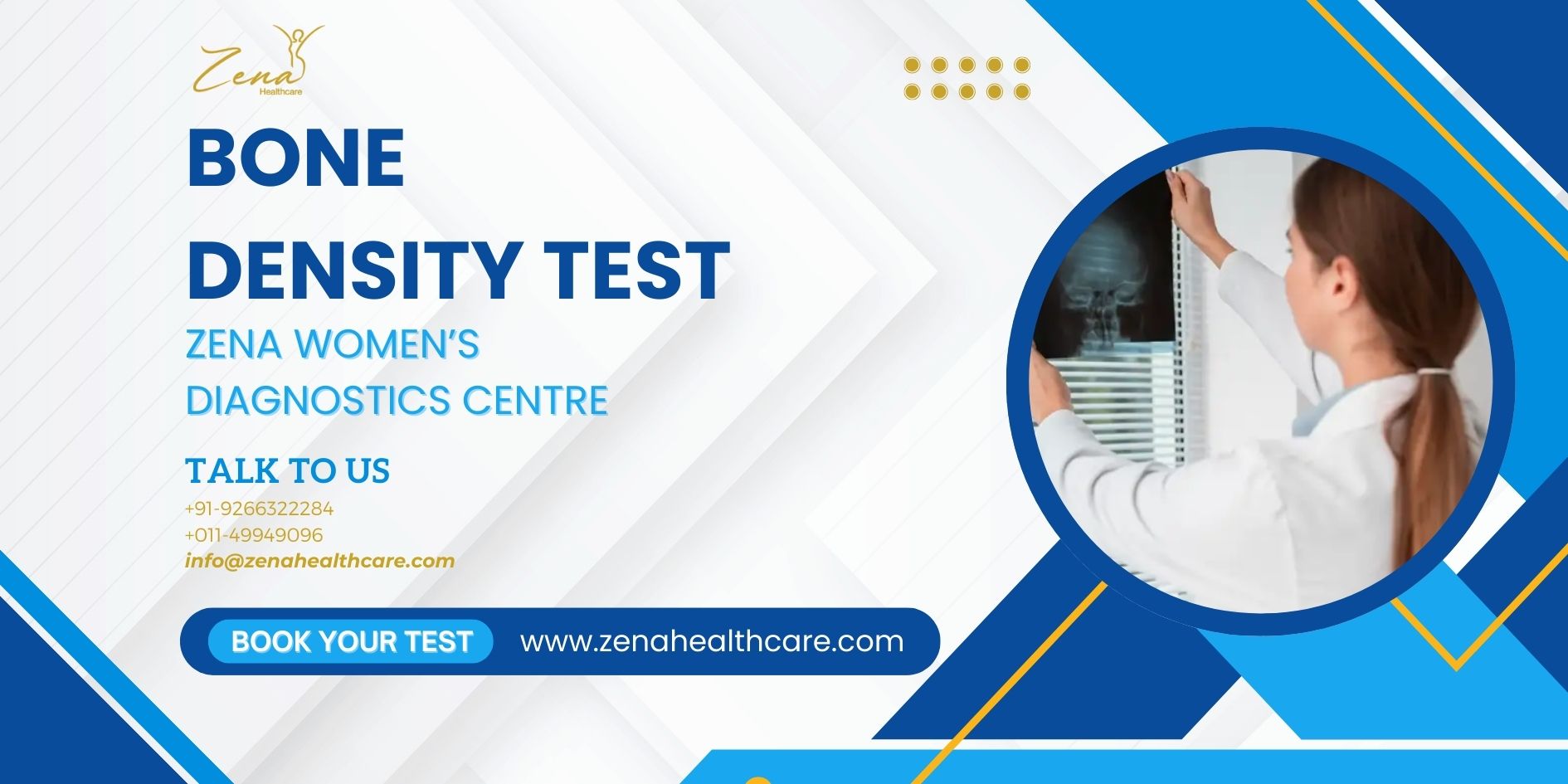As we age, our bodies undergo many changes; some visible, others silent and unnoticed until they become critical. One of the most crucial, yet often overlooked, aspects of aging is bone health. Bones may seem like rigid, unchanging structures, but in reality, they are dynamic tissues that constantly break down and rebuild throughout our lives. However, with age, this balance can shift, leading to decreased bone density and increased risk of fractures and osteoporosis.
Bone density test in Delhi, a significant diagnostic procedure that can help detect early signs of bone loss, guide preventive strategies, and ultimately promote healthy aging. In this blog we will understand the importance of bone density test along with how the test is performed, who should consider it, and how it can be a game changer. Moreover, this blog also entails how this test ensures long-term mobility, independence and quality of life. Continue reading for further information.
Understanding Bone Density Test
A bone density test, also known as bone densitometry or DEXA (dual-energy X-ray absorptiometry) scan. It is a non-invasive procedure that measures the amount of minerals, primarily calcium, in your bones. This helps assess bone strength and the risk of fractures or osteoporosis. In addition, the test is performed at specific sites, these key specific sites are as follows:
- Hip
- Spine
- Forearm (in some cases)
Why Bone Density Matters?
As mentioned before, bone density refers to the amount of bone mineral in bone tissue. Higher bone density means stronger bones, while lower density can indicate bone loss and a higher risk of fractures. Here’s why bone density matters:
- Fractures in older adults especially of the hip or spine. This can further leads to loss of independence, long hospital stays, and even increased mortality.
- Osteoporosis, a condition marked by low bone density, affects 1 in 3 women and 1 in 5 men over 50.
- Bone loss is often silent, with no symptoms until a fracture occurs.
How the Bone Density Test Works
Here’s how bone density test works:
During the Test:
- The patient lies on a padded table.
- The scanner passes over the body.
- The test takes 10 to 30 minutes, is painless, and requires no special preparation.
Results:
The scan provides two important scores:
1. T-score
- Compares your bone density to that of a healthy 30-year-old.
- T-score ≥ -1.0: Normal bone density
- T-score between -1.0 and -2.5: Low bone mass (osteopenia)
- T-score ≤ -2.5: Osteoporosis
2. Z-score
- Compares your bone density to others your age, sex, and size.
- Mainly used in younger individuals or secondary bone loss cases
Who Should Get a Bone Density Test?
Bone density test is recommended for below-mentioned individuals:
- Women aged 65 and older
- Men aged 70 and older
- Postmenopausal women under 65 with risk factors
- Adults with medical conditions or medications that affect bone health
Additional risk factors include:
- Family history of osteoporosis
- Smoking
- Low body weight
- Early menopause or low estrogen levels
- Sedentary lifestyle
- Vitamin D and calcium deficiency
- Chronic diseases (e.g., rheumatoid arthritis, thyroid disorders)
- Long-term use of corticosteroids
Benefits of Bone Density Testing
The key benefits of bone density testing are mentioned below:
- Early Detection of Osteoporosis
Bone loss occurs gradually and silently. A bone density test is often the only way to detect early changes, allowing for timely intervention.
- Fracture Risk Assessment
By understanding your bone health, doctors can estimate your 10-year risk of a fracture, helping guide lifestyle changes and treatments to reduce that risk.
- Monitoring Progress
For those already undergoing treatment for osteoporosis, periodic tests help assess:
- Effectiveness of medication
- Progression of bone loss
- Adjustments in treatment strategy
- Preventive Care and Lifestyle Adjustments
Results can motivate individuals to:
- Improve nutrition (calcium, vitamin D)
- Engage in weight-bearing exercises
- Quit smoking
- Reduce alcohol intake
- Fall-proof their home environment
Treatment Options Based on Bone Density Test Results
Depending on the severity, treatment may include:
- Lifestyle Modifications
- Calcium-rich diet (leafy greens, dairy, fortified foods)
- Vitamin D supplements
- Weight-bearing and resistance exercises
- Medications
- Bisphosphonates (e.g., Alendronate, Risedronate)
- Selective estrogen receptor modulators (SERMs)
- Hormone Replacement Therapy (HRT)
- Parathyroid hormone analogs for severe cases
- Denosumab, a monoclonal antibody for postmenopausal women
How Often Should You Get a Bone Density Test?
You should get tested for bone density every:
- If normal: Every 5 years
- If osteopenia is present: Every 2–3 years
- If osteoporosis or treatment is ongoing: Annually or as advised
However, the frequency depends on age, health status, risk factors, and response to treatment.
How to Prepare for a Bone Density Test
Here’s how you should be prepared for a bone density test:
- No special preparation needed
- Wear comfortable clothing without metal (zippers, buttons)
- Avoid calcium supplements 24 hours prior
- Inform your doctor if pregnant
Get affordable and accurate bone density testing at Zena Diagnostic centre for women in Greater Kailash!
Bones may be out of sight, but they should never be out of mind especially as we age. A bone density test is more than just a diagnostic tool; it’s a gateway to prevention, better quality of life, and empowered aging. If you are seeking this test exclusively for women then visit Zena Diagnostic centre for women in Greater Kailash! Book an appointment today!
